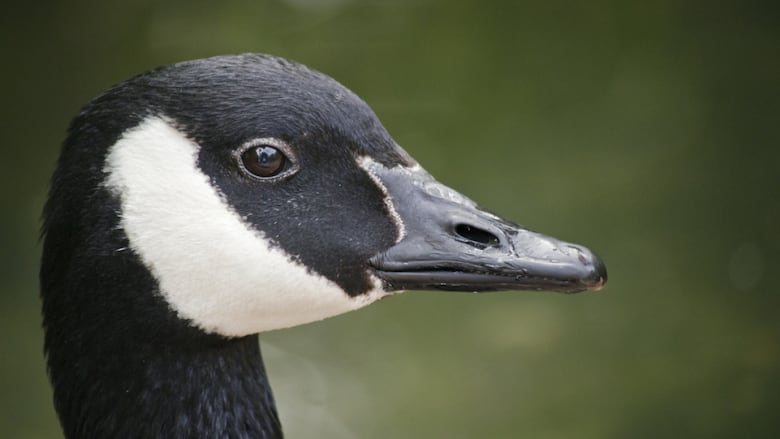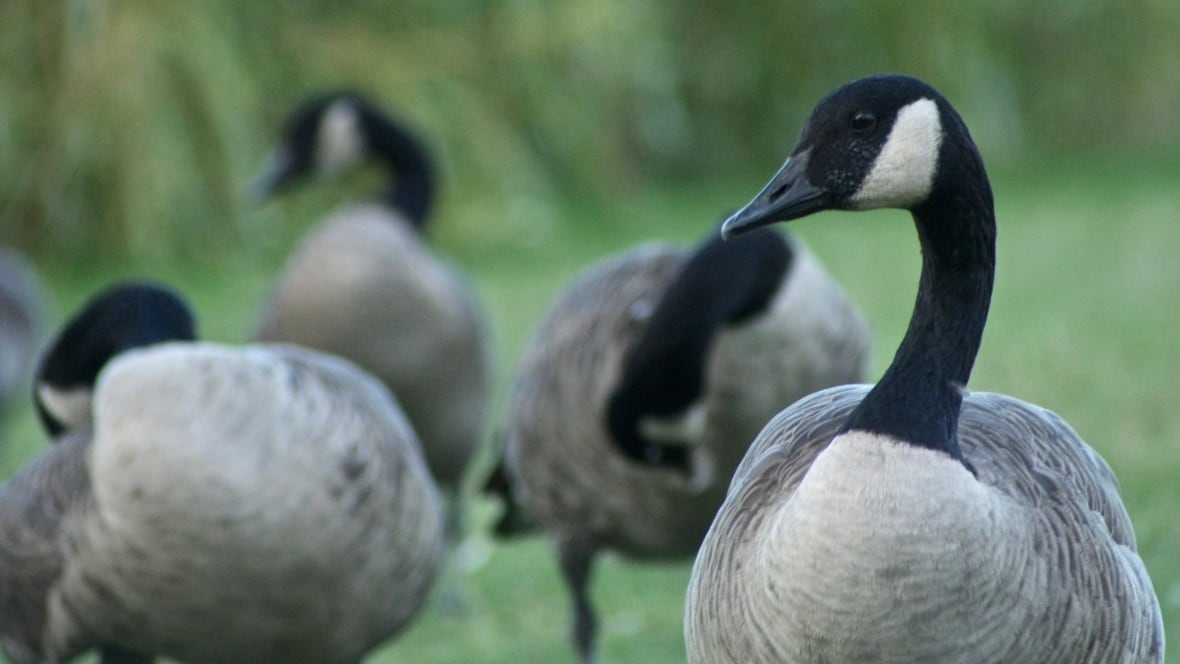Winnipegger's $300 fine for throwing things at Canada goose a rare case but a good reminder, lawyer says
Expert says similar incidents likely happen often, but 'the difference in this case is that person was caught'

A Winnipeg woman has been fined $300 for throwing things at a Canada goose that got in her way as she tried to get into her friend's apartment building.
The birds are protected by federal law, which makes harassing them an offence.
The woman, now 20, pleaded guilty under federal legislation known as the Migratory Birds Convention Act, after being caught on camera throwing a bottle of leather cleaner and a pylon at the goose to chase it off its nest.
"I was just … trying to scare it away," the woman told provincial court Judge Kelly Moar in a Winnipeg courtroom last month.
"So you agree that that's what ultimately happened that day? You understand that they are protected birds or you now know that?" Moar asked the woman.
"Now I know," she said, her mom sitting beside her.
It's a case one expert says offers a window into the world of Canadian wildlife laws. Though it's "fairly rare" for charges to be laid under the act, animal lawyer and educator V. Victoria Shroff said she thinks similar incidents between people and animals happen often, but typically go undetected.
"The difference in this case is that person was caught," said Shroff, who works at Shroff Animal Law in Vancouver and teaches at the University of British Columbia's Peter A. Allard School of Law.
"It's just a fluke that some passerby happened to have witnessed it and videotaped it…. People need to watch out. Everybody's got a camera in their phone now, and people are watching."
Didn't know it's illegal? 'Doesn't matter,' lawyer says
The investigation into the Winnipeg case started when an environment officer got a call on May 8, 2024, about a woman harassing a nesting goose a day earlier near a Henderson Highway apartment building, court heard last month.
The officer checked the information of the vehicle that was at the scene and contacted the owner, who said his daughter was driving that day. The daughter admitted to authorities to harassing the goose, but said she wasn't in the right headspace because she'd recently learned she was pregnant.
While the ticket listed a penalty of $730, a judge agreed to lower the amount.
Federal Crown attorney Joan Schmidt said considering the circumstances, she thought a lower fine was appropriate and would still "drive home the message that, as frustrating as geese can sometimes be — because they can be aggressive, especially when they're nesting — they are protected in Canada and you just have to work around them."
Shroff said she thinks these kinds of cases boil down to human entitlement and lack of education about the law.

"Anytime people see wildlife, they sort of think, 'Well, I was here first. I'm going to do something about this. This animal is in my way and I'm going to take action,'" Shroff said.
"And I think that's where a lot of people … come before the court and they say, 'Well, I didn't know that was a crime.' But that doesn't matter."
What else isn't allowed — and how much you could be fined
Recent news releases from Environment and Climate Change Canada help paint a picture of the kinds of offences that lead to people being charged under the act, and the kinds of punishments they can face, with fines ranging from a few thousand dollars to over $1 million.
Last year in Quebec, for example, two people who destroyed bank swallow nests while working on a mound of earth were ordered to pay $60,000 and $5,000, respectively.
And in 2019, an oil company in Alberta was ordered to pay $1.775 million after 30 dead great blue herons were found after being exposed to bitumen at a company facility.
In Manitoba, conservation officers mostly use the act for hunting enforcement, like hunting without permits or killing more birds than allowed, a provincial spokesperson said in an email. Less frequently laid charges include taking eggs (generally for consumption), possessing live birds (which people often think are orphaned) and selling bird taxidermy or feathers.
Conservation officers lay those kinds of charges about three to six times a year, the spokesperson said.
Meanwhile, a spokesperson for Environment and Climate Change Canada said in an email the federal agency's enforcement officers laid 34 charges under the act last year, which don't include offences that were dealt with through warnings, tickets or fines.

If a bird is causing issues, people should contact the Canadian Wildlife Service or other wildlife enforcement for advice, the spokesperson said.
The migratory birds legislation comes from a time when Canada goose populations were struggling, and required "extensive and expensive intervention to bolster numbers," the provincial spokesperson said.
While their numbers are higher now, "that could change quickly without protections," the spokesperson said.
